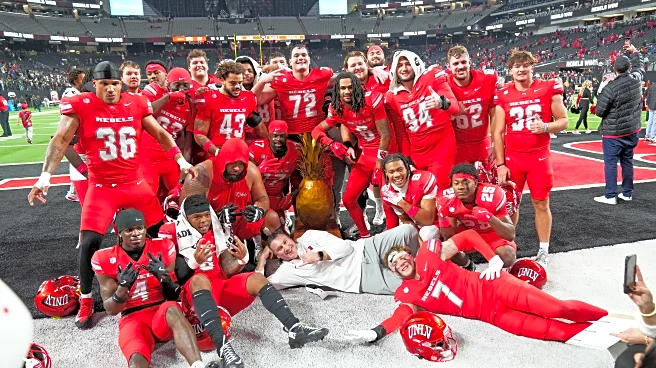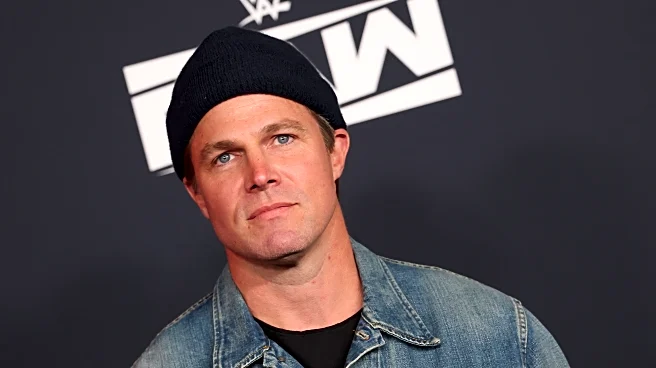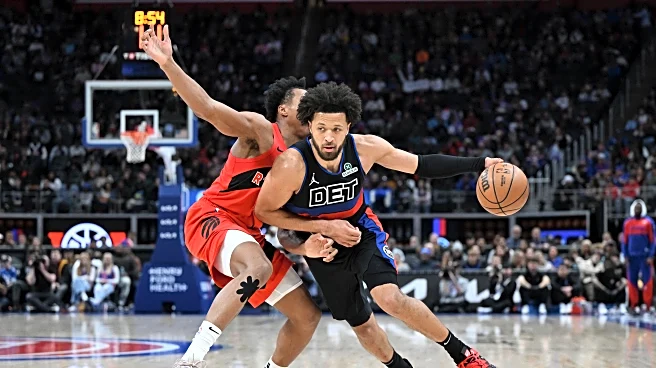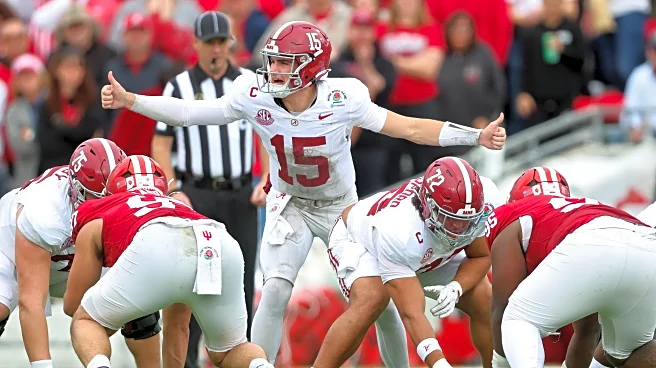What's Happening?
Sean 'Diddy' Combs' legal team has submitted a 380-page filing requesting that his sentence be adjusted to reflect time already served. The attorneys argue that it is time for Combs to return home to his family. This development follows Combs' involvement in legal proceedings, although specific details of the charges or the duration of his incarceration were not disclosed in the source. The filing represents a significant effort by Combs' legal team to expedite his release, emphasizing the impact of his absence on his family.
Why It's Important?
The request for a sentence adjustment for Sean 'Diddy' Combs highlights the broader implications of celebrity legal cases and their influence on public perception and the justice system. Combs, a prominent figure in the entertainment industry, has a substantial following, and his legal battles can affect his career and public image. The outcome of this request could set a precedent for similar cases involving high-profile individuals, potentially influencing how sentences are negotiated and served. Additionally, the case underscores the importance of legal advocacy in seeking fair treatment within the judicial system.
What's Next?
If the court grants the request, Sean 'Diddy' Combs could be released soon, allowing him to resume his professional activities and personal life. The decision will likely attract significant media attention, given Combs' status in the entertainment industry. Stakeholders, including fans and industry peers, may react to the court's decision, influencing public discourse around celebrity justice. The case may also prompt discussions on the fairness and transparency of legal proceedings involving celebrities.
Beyond the Headlines
The case of Sean 'Diddy' Combs raises questions about the intersection of celebrity status and the legal system. It highlights potential disparities in how justice is administered for high-profile individuals compared to the general public. The situation may lead to debates on whether celebrities receive preferential treatment or face harsher scrutiny due to their public profiles. Additionally, it could spark conversations about the role of media coverage in shaping public opinion and judicial outcomes.










